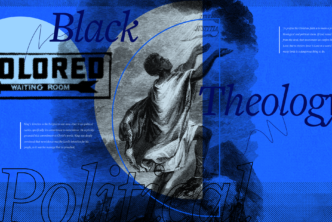John Piper’s recently released book on God’s providence has been a work coming to fruition for some 20 years. And it’s meaty—700 pages. But Piper isn’t shy about its size—or its title (some may wonder why the word “sovereignty” isn’t included). He says he knew he needed to write not just about the fact that God is sovereign—that he has the authority and right and power to do whatever he pleases—but why.
It’s what Piper calls “purposeful sovereignty,” his short definition for providence: Why does God do what he does? Where is it all going?1
Piper’s goal in writing the book is for there to be “God-besotted people who live in a God-entranced world.”2
What does that mean, you ask?
You’ll have to open Providence to find out. But to satisfy your curiosity just a bit, here’s an excerpt from the first chapter about God’s providence on Mount Moriah.
***
The word providence is built from the word provide, which has two parts: pro (Latin “forward,” “on behalf of”) and vide (Latin “to see”). So you might think that the word provide would mean “to see forward” or “to foresee.” But it doesn’t. It means “to supply what is needed”; “to give sustenance or support.” So in reference to God, the noun providence has come to mean “the act of purposefully providing for, or sustaining and governing, the world.”
. . .
There is the biblical story of Abraham’s offering of his son Isaac. Before they went up Mount Moriah, Isaac said to his father, “Where is the lamb for a burnt offering?” (Gen. 22:7). Abraham answered, “God will provide for himself the lamb for a burnt offering, my son” (22:8). And when God had shown Abraham a ram caught in the thorns, “Abraham called the name of that place ‘The Lord will provide’” (22:14).
What is striking is that whenever the word provide occurs in Genesis 22, the Hebrew word is simply “to see.” Very simply, Abraham says to Isaac, “God will see for himself the lamb” (יִרְאֶה־לֹּ֥ו הַשֶּׂ֛ה 22:8). Similarly in verse 14: “‘The Lord will provide’ [the Lord will see יְהוָ֣ה יִרְאֶ֑ה]; as it is said to this day, ‘On the mount of the Lord it shall be provided’ [it shall be seen בְּהַ֥ר יְהוָ֖ה יֵרָאֶֽה].”
The old King James Version preserves this literal rendering of Genesis 22:14, even transliterating the Hebrew of “the Lord sees” as Jehovahjireh: “Abraham called the name of that place Jehovahjireh: as it is said to this day, In the mount of the Lord it shall be seen.” The New King James Version has joined virtually all other contemporary versions by translating see as provide: “Abraham called the name of the place, The-Lord-Will-Provide; as it is said to this day, ‘In the Mount of the Lord it shall be provided.’ ”
With regard to the doctrine of God’s providence, the question is this: Why does God’s seeing in Genesis 22 actually refer to his providing—his providence?
The answer I suggest is that in the mind of Moses, and other authors of Scripture, God does not simply see as a passive bystander. As God, he is never merely an observer. He is not a passive observer of the world—and not a passive predictor of the future. Wherever God is looking, God is acting.
In other words, there is a profound theological reason why God’s providence does not merely mean his seeing, but rather his seeing to. When God sees something, he sees to it. Evidently, as Moses wrote Genesis 22, God’s purposeful engagement with Abraham was so obvious that Moses could simply refer to God’s perfect seeing as implying God’s purposeful doing. His seeing was his seeing to. His perception implied his provision—his providence.
***
Learn more about God’s providence with these resources:
- Divine Sovereignty and Human Responsibility: Biblical Perspectives in Tension by D. A. Carson
- Almighty over All: Understanding the Sovereignty of God by R. C. Sproul, Jr.
- The Happy Life, Answer to Skeptics, Divine Providence and the Problem of Evil, and Soliloquies. (Volume 5 of The Fathers of the Church by Augustine)
- Studies in Dogmatics: The Providence of God by G. C. Berkouwer
- The Providence of God by B. H. Carroll
This post is excerpted from John Piper’s book Providence, available now.
- Piper, John. Providence. (Wheaton, IL: Crossway), 2021.
- https://youtu.be/qm9947JOwVg






